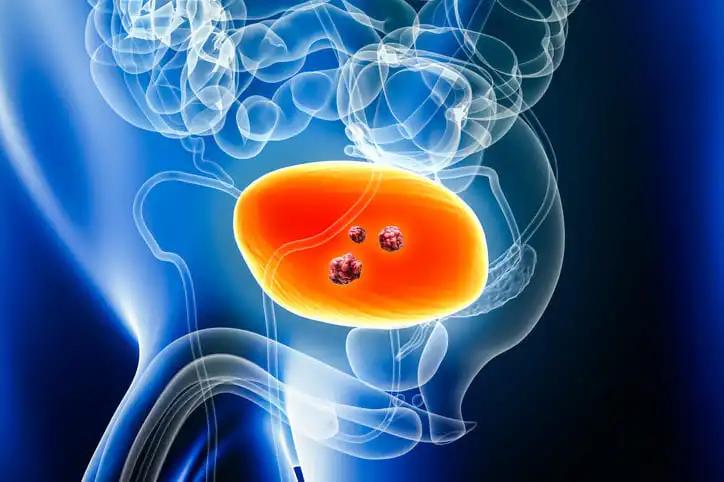KEY TAKEAWAYS
- The THOR phase III trial aimed to evaluate the efficacy and safety of erda compared to pembro in mUC patients who have not previously received anti-PD-(L)1 therapy.
- The primary endpoint was OS. Secondary endpoints were PFS, ORR, and safety.
- The result demonstrated that Erda’s survival matched pembro for untreated FGFRalt bladder cancer, with less tumor growth and possibly better response, and side effects were manageable.
For this study, researchers aimed to evaluate the efficacy and safety of erda compared to pembro in metastatic urothelial cancer(mUC) patients who have not previously received anti-PD-(L)1 therapy.
Adults (≥18 years) with unresectable advanced/mUC and select FGFR3/2 alt, ECOG PS 0-2, who had disease progression on one prior treatment(tx) and were naive to anti-PD-(L)1, were randomized 1:1 to receive erda (8 mg QD, uptitrated to 9 mg based on pharmacodynamics) or pembro (200 mg Q3W).
The primary endpoint was overall survival (OS), and secondary endpoints included progression-free survival (PFS), objective response rate (ORR), and safety assessment.
The intent-to-treat set(median follow-up 33.2 mo) included 175 patients in the erda arm and 176 in the pembro arm. The primary endpoint was not achieved, revealing no statistically significant difference in OS between tx arms. Erda showed a numerically longer PFS and a numerically higher ORR but a shorter duration of response.
The most common treatment-related adverse events (TRAEs) of any grade for erda included hyperphosphatemia (73%), stomatitis (45%), diarrhea (45%), and dry mouth (35%), while for pembro, they were pruritus (12%), asthenia (10%), hypothyroidism (10%), and fatigue (10%).
Grade 3-4 TRAEs and serious TRAEs occurred in 43% and 13% in the erda arm and 12% and 10% in the pembro arm, respectively. TRAEs leading to death were observed in 0 patients in the erda arm and 3 (2%) in the pembro arm. About 15% of patients discontinued erda, and 5% discontinued pembro due to TRAEs.
The result demonstrated that erda’s survival matched Pembro for untreated FGFRalt bladder cancer, with less tumor growth and possibly better response, and side effects were manageable.
Clinical Trial: https://clinicaltrials.gov/study/NCT03390504
Siefker-Radtke AO, Matsubara N, Park SH, Huddart RA, Burgess EF, Ozguroglu M, Perez Valderrama B, Triantos S, Akapame S, Kean Y, Deprince K, Mukhopadhyay S, Loriot Y. Phase III THOR study: Results of erdafitinib (erda) vs pembrolizumab (pembro) in pretreated patients with advanced or metastatic urothelial cancer with select fibroblast growth factor receptor alterations. Ann Oncol. 2023;34(suppl_2):S1202-S1228. doi:10.1016/annonc/annonc1310.



